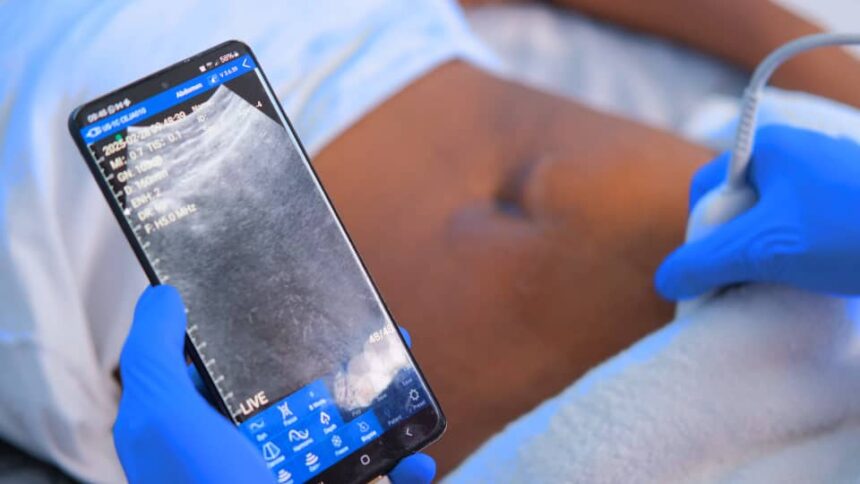One Step At a Time (Osaat), Africa Health Foundation recently launched a novel handheld sonar probe, a ground-breaking effort to decentralise women’s healthcare and enhance access to crucial diagnostic services.
Without requiring internet access, this innovative tool will give women in rural areas and informal settlements access to life-saving prenatal and gynaecological imaging.
“Our first clinic is this weekend in Groot Aub. This cutting-edge device will provide women in informal settlements and rural areas life-saving prenatal and gynaecological imaging without internet connectivity,” said Dr Esperance Luvindao, country director of Osaat Africa Health Foundation.
The foundation is a registered non-profit organisation focusing on sexual reproductive health (SRH) and women’s health.
Founded in 2019, Osaat provides SRH education in native languages, contraceptive clinics and digital health. The foundation boasts a base of nearly 200 volunteers.
In 2024, it was awarded the Echoing Green Fellowship.
Luvindao said there is an urgent need for decentralised maternal healthcare, as more than 50% of women in low-income regions have never undergone a sonar scan despite having been pregnant before.
She said this programme is a component of a more significant effort to decentralise healthcare throughout Africa.
It aligns with sustainable development goal 3.8 (Universal Health Coverage), as the OSAAT Africa Health Foundation lays the groundwork for a sustainable, scalable healthcare model.
The model lessens hospital congestion and guarantees that all women, wherever possible, access essential women’s healthcare services by combining digital health solutions with community health worker-led interventions.
“Many are forced to travel long distances to urban centres, incurring huge out-of-pocket expenses just to receive basic prenatal care. Some suffer from conditions such as large fibroids, which contribute to recurrent miscarriages, yet the lack of accessible sonar technology leaves them undiagnosed and untreated. The congestion at public hospitals further exacerbates this crisis, highlighting the urgent need for decentralised, community-based healthcare solutions,” she said.
The medical officer said this clinic will provide access to ultrasound screenings, helping women detect conditions early and improve maternal health outcomes.
“OSAAT community-based radiology model empowers trained community health workers to perform on-the-spot obstetric and gynaecological ultrasounds using a handheld sonar probe that weighs only 0.9kg and connects seamlessly to a phone, laptop or iPad,” she noted.
Luvindao said this portable, cost-effective solution enables early detection of fibroids, cysts, polyps and IUCD placements, significantly reducing maternal mortality risks.
Unlike traditional ultrasound systems that require internet connectivity and expensive infrastructure, this device operates without internet access, ensuring that even the most remote communities can benefit.
In cases requiring further medical expertise, the sonar images can be sent telephonically to a radiologist for interpretation and guidance.



